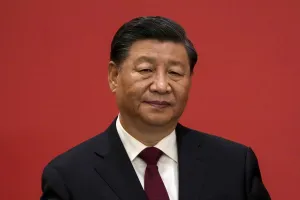NNPC Mobilizes 100 Trucks to Load Fuel at Dangote Refinery, Marking Major Milestone in Nigeria’s Energy Sector

In a significant development, the Nigerian National Petroleum Company Limited (NNPCL) has deployed over 100 trucks to the Dangote Refinery’s fuel loading gantry in Ibeju-Lekki, Lagos. This massive mobilization effort is part of the government’s plan to enhance local refining capacity and alleviate pressure on the Naira.
The first batch of Premium Motor Spirit (PMS), popularly known as petrol, is scheduled to be loaded on Sunday, September 15, 2024, marking a major milestone in Nigeria’s journey towards energy self-sufficiency. The Federal Government has announced that the Dangote Refinery will supply petrol and diesel to the domestic market, with payments made in Naira.

This move is expected to reduce pressure on the Naira, eliminate unnecessary transaction costs, and improve the availability of petroleum products across the country. The Dangote Refinery, owned by Africa’s richest man, Aliko Dangote, has been touted as a game-changer for Nigeria’s energy sector.
Boosting Local Refining Capacity
The deployment of trucks to the Dangote Refinery is a clear indication of the government’s commitment to boosting local refining capacity. Nigeria has long relied on imported petroleum products, which has put a strain on the country’s foreign exchange reserves.
By supporting local refining, the government aims to reduce the country’s dependence on imports, create jobs, and stimulate economic growth. The Dangote Refinery, with its capacity to produce 650,000 barrels of oil per day, is poised to play a significant role in achieving this goal.
Payment Terms and Benefits
The Federal Government’s decision to pay for petrol and diesel supplies from the Dangote Refinery in Naira is a significant development. This move is expected to reduce pressure on the Naira, as the country will no longer need to rely on foreign exchange to import petroleum products.
Additionally, the elimination of unnecessary transaction costs associated with foreign exchange transactions will help to reduce the cost of petroleum products for consumers. This, in turn, is expected to improve the availability of petroleum products across the country.
Conclusion
The deployment of trucks to the Dangote Refinery marks a significant milestone in Nigeria’s energy sector. As the country moves towards energy self-sufficiency, the government’s commitment to boosting local refining capacity and reducing dependence on imports is clear.
With the Dangote Refinery set to supply petrol and diesel to the domestic market, Nigerians can expect improved availability of petroleum products and reduced prices. This development is a step in the right direction for Nigeria’s energy sector, and we can expect more updates as the situation unfolds.







